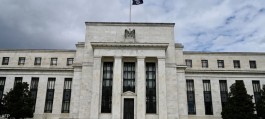Asian stocks rebounded after a sharp two-day slide, the biggest since April, as investors returned to buying dips following a brief pullback in technology stocks due to concerns about rising valuations.
The MSCI regional index rose 1.1%, with Hong Kong and Japan posting the biggest gains. Ten of the 11 industry groups included in the index advanced, with two stocks rising for every one falling. SoftBank Group shares climbed 0.9% after the company revealed it was exploring a potential acquisition of US chipmaker Marvell Technology.
Asian rally fueled by dip buying
The gains in Asia came after Wall Street indexes rebounded from Tuesday's losses, as traders bought dips in shares of some of the biggest winners from the artificial intelligence boom.
Futures for the S&P 500 and Nasdaq 100 were little changed, while Qualcomm shares fell 2.6% in extended trading, despite the company offering positive forecasts that disappointed investors.
Robert Edwards of Edwards Asset Management said: “For investors holding cash out of the market, the recent pullback looks like a good buying opportunity, especially for those with a long-term investment horizon. Earnings growth is strongly outpacing revenue, and this often leads to an expansion in valuations.”
After a brief pullback that raised concerns about excessively high prices, buyers returned to the market, driven by strong earnings momentum and positive economic data from the private sector.
This improvement in sentiment comes after the global rally encountered a temporary hurdle earlier in the week, when top Wall Street executives warned that high valuations could lead to a market correction.
Calm prevails on Wall Street as the fate of Trump's tariffs is awaited.
US markets were calm on Wednesday after an earlier decline in shares of major technology companies.
Concerns mounted over the narrowing range of stocks leading market gains, while a shift in the Federal Reserve's tone dampened optimism about interest rate cuts, and technical indicators reflected increasingly cautious signals, coinciding with warnings from Wall Street executives about a potential valuation bubble.
Meanwhile, US President Donald Trump's use of his broad powers to impose global tariffs has faced challenges in the Supreme Court, which has expressed doubts about the legality of these wide-ranging tariffs. Trump announced the highest tariffs in a century in April as part of his economic policy aimed at reshaping global trade.
During a hearing that lasted about three hours on Wednesday, the judges hinted that they were prepared to impose significant restrictions on Trump's economic agenda for the first time since he took office in January.
Nick Tweedel, senior analyst at AT Global Markets in Sydney, said: This issue will certainly remain on investors' minds, but unless it translates into actual action, we will see little reaction in the markets.
Economists at Goldman Sachs Group, led by Alec Phillips, wrote in a note that the importance of the case and the likelihood of a split among the judges suggest lengthy discussions, but a quick review and a desire to avoid larger financial restitutions could mean a ruling in December or January.
Movements of Chinese commodities, currencies, and markets
In the commodities markets, gold held onto its gains, while oil rose slightly after three days of losses.
US Treasury yields stabilized after gains in the previous session, following the US government's indication of its intention to increase the size of upcoming auctions. Signs of economic resilience have reduced the likelihood of an interest rate cut by the Federal Reserve in December. The Bloomberg Dollar Index also continued its decline.
Meanwhile, the number of Chinese companies listed in MSCI's global indices rose for the first time in nearly two years, paving the way for an influx of additional investments from passive funds.
Data compiled by Bloomberg showed that MSCI added 26 Chinese companies and removed 20 in its latest quarterly review, marking the first time since February 2024 that additions have outnumbered removals in its benchmark global index.





































